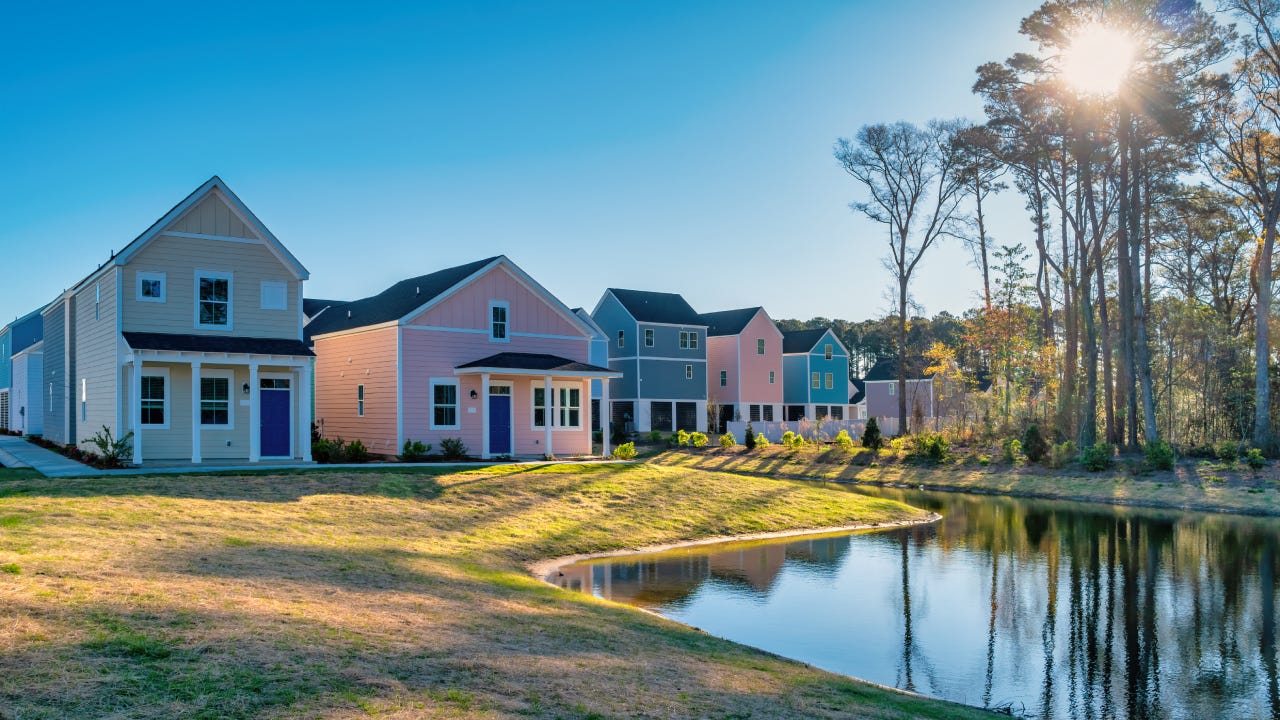How to sell a house by owner in South Carolina

Key takeaways
- Selling your house without a real estate agent is possible, but it involves a lot of work, including marketing the listing, hosting showings and negotiating the contract.
- Not having a listing agent means not having to pay a listing agent's commission. But even so, you may still have to pay your buyer's agent's fee.
- The state of South Carolina requires an attorney to oversee real estate closings, and the attorney must be present in person.
If you’ve been thinking about selling your home in South Carolina, you’ve probably wondered about the recent real estate commission headlines. If you wait until the end of the summer, when the changes go into effect, will you save a bundle on commission fees? While you may or may not have to pay the buyer’s agent’s commission, depending on the terms of your deal, sellers do still have to pay their own agent. Unless you opt to go without one and sell the house on your own.
While every market in the Palmetto State is different, one fact remains true whether you’re in the Blue Ridge Mountains or at the beach: For sale by owner (FSBO) transactions require a whole lot of work. Read on for a full rundown of how to sell a house by owner in South Carolina.
Selling a house without a Realtor in South Carolina
If you’re ready for the challenge of a FSBO home sale, here are some of the steps you’ll need to take:
Research your local market
Housing markets require a hyper-local understanding. For example, April 2024 Redfin data shows that year-over-year home prices in the state as a whole rose just under 8 percent. However, in Seneca, the median sale price soared by more than 33 percent in the same time frame, while in the state capital of Columbia, prices remained flat.
With that in mind, and without a real estate agent to guide the way, you’ll want to start the FSBO process in South Carolina by doing a lot of research. Put a finger on the pulse of the market in your town — and even in your specific neighborhood.
List and promote your home
After you have reviewed comparable listings that have recently sold in your area to figure out how much your home is worth, it’s time to craft an online listing that captures attention from prospective buyers. Consider hiring a professional photographer for this step: People scroll through loads of listings online, and high-quality pictures help stop them from swiping away. Amateur photos with poor lighting taken on your phone probably won’t do the trick.
If you want to make sure your listing appears on the sites that house-shoppers are browsing, like Zillow, Trulia and Realtor.com, you’ll probably need to pay to get it included on the local MLS. This database (short for multiple listing service) is what real estate agents use to keep track of what’s on the market, and its contents get aggregated by many listing websites. There are plenty of companies that will list your home on the MLS for a flat fee (and provide more services for a larger fee). Try national sites like Houzeo or Homecoin, or local ones like SouthCarolinaMLSFlatFee.com.
The old-school approach of putting a sign in the yard might not get that much traction in today’s online world, but it’s worth a try. You can also get the word out via social media, but be cautious about how much information you share — especially if you are still living in the house.
Negotiate and close the deal
Hopefully, you’ll get an offer, or perhaps several. In addition to price, you’ll need to carefully consider the terms. Can the buyer close on a timeline that meets your needs? What contingencies are included in the contract? How comfortable are you with the pressure of back-and-forth negotiations? Having a real estate attorney can be a real asset for FSBO sellers, as their expertise can help you make sure the contract is buttoned-down and your interests are covered.
After you agree to the terms and have a signed contract, you’ll need to continue to work to actually get the deal done. That means plenty of paperwork to take care of, and probably plenty of buyer questions to answer, before closing day arrives. If you’ve hired a lawyer, he or she can handle the final paperwork and funds transfers.
Required disclosures for South Carolina home sellers
South Carolina disclosure laws have changed in recent years with an update that requires you to share knowledge of flood history and erosion risks. It’s part of the state’s seven-page Residential Property Condition Disclosure statement. You’ll need to include a range of information about any potential defects that can impact the property, along with other information, such as when the roof was installed and any structural changes you have made as the owner.
Do I need a lawyer to sell my house in South Carolina?
South Carolina state law does require a lawyer to be present at and oversee the closing. However, that lawyer doesn’t necessarily need to be your own — the buyer usually hires the lawyer for that final step. It’s worth considering paying for your own legal counsel, though, especially as a FSBO seller. There’s a mountain of paperwork involved in a real estate transaction, and there’s a lot of money at stake, so a mistake can be costly. Legal expertise can provide peace of mind.
Pros and cons of selling a house by owner in South Carolina
Pros
- You’ll save money: If you don’t use a listing agent, you don’t pay a listing agent’s fee. Each agent involved in the sale typically earns between 2.5 and 3 percent of the home’s sale price for their services — on a $350,000 sale, 2.5 percent comes to $8,750 in savings that you’ll get to pocket.
- You’ll be in the driver’s seat: When there’s no agent telling you how things should be done, you’re in complete control. You can do things exactly as you see fit.
- You’ll be your own top priority: Pro agents are often busy juggling multiple clients at once. FSBO sellers don’t have to wait for anyone to call them back or schedule around anyone else’s calendar except their own.
Cons
- It’s a lot of work: Being in the driver’s seat can also be a major downside. It means you have to know where you want to go, and you have to know how to get there — be ready to create your own listing, market it, schedule and host showings, negotiate terms, answer questions and deal with plenty of paperwork.
- There’s risk involved: Real estate transactions mean delicate negotiations and combing through a lot of legalese to get the deal to the finish line. And unless you went to law school, your contract might look like a thick novel in a foreign language. You don’t want to make a mistake when there’s this much money on the line.
- You might make less money: Data from the National Association of Realtors has shown that homes sold by agents sell for higher prices than homes that are sold without agents. So even if you save money on commissions, you could still lose money in the end.
FAQs
-
Yes, you can sell your house on your own in South Carolina (or anywhere). Be prepared to do all the work an agent would normally do, though, including marketing the listing, negotiating with buyers and preparing your disclosure statements. If you go without an agent, it’s wise to consider hiring a real estate attorney to help you navigate the complexities of the contract and closing.
-
Technically, no. As a seller, you aren’t legally required to hire your own attorney — however, state law does require that a licensed attorney be present at the closing to oversee the proceedings. In most cases, the buyer will be the one who hires this attorney. But selling a house requires a lot of complicated contract language, so it’s smart to hire your own attorney anyway to represent your interests in the deal.
Why we ask for feedback Your feedback helps us improve our content and services. It takes less than a minute to complete.
Your responses are anonymous and will only be used for improving our website.






